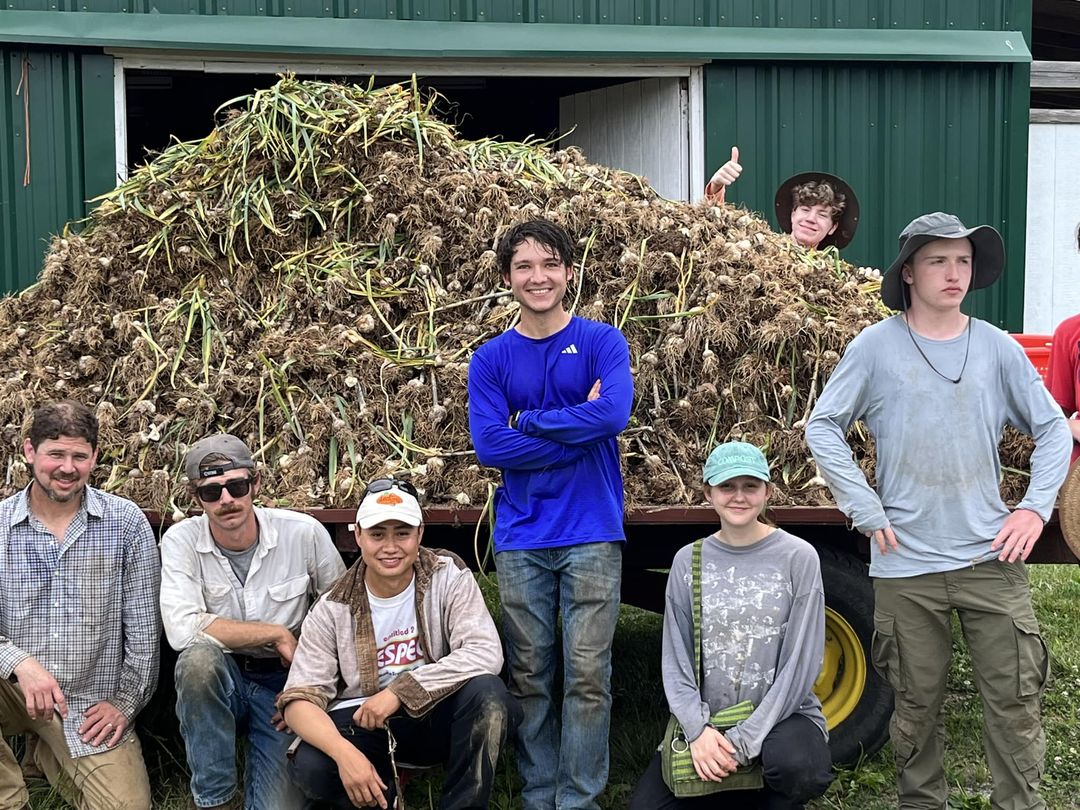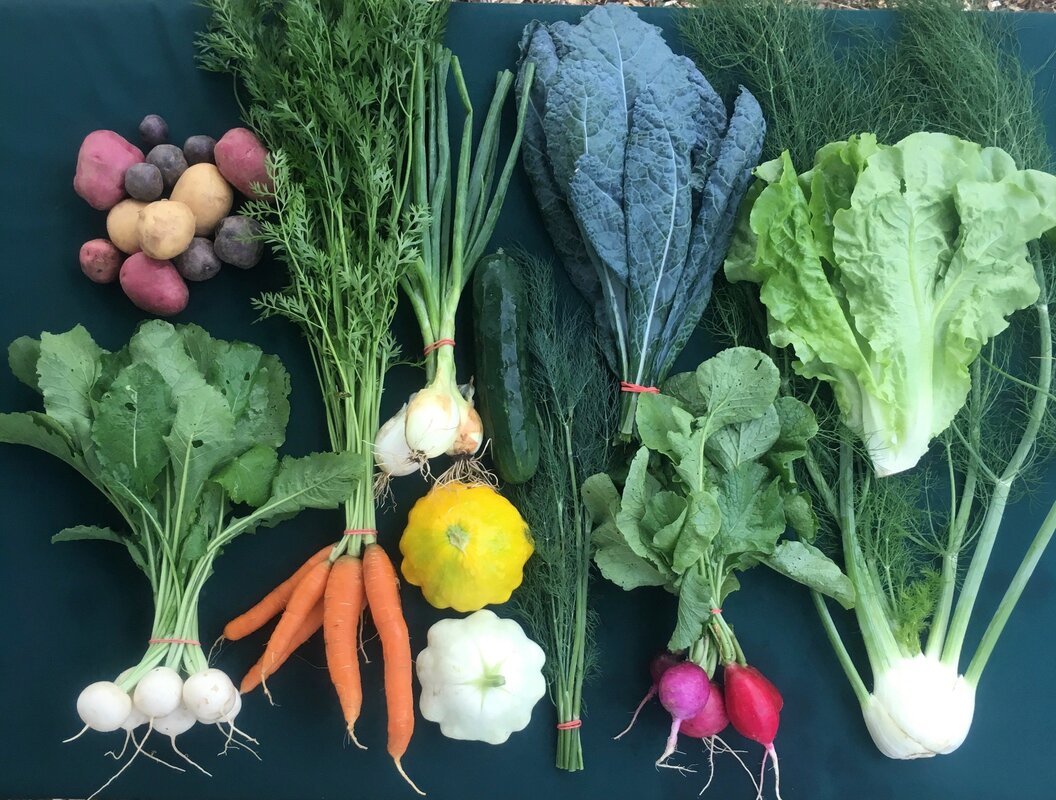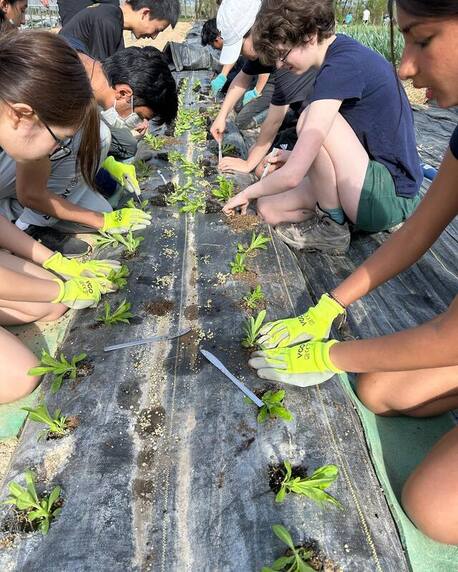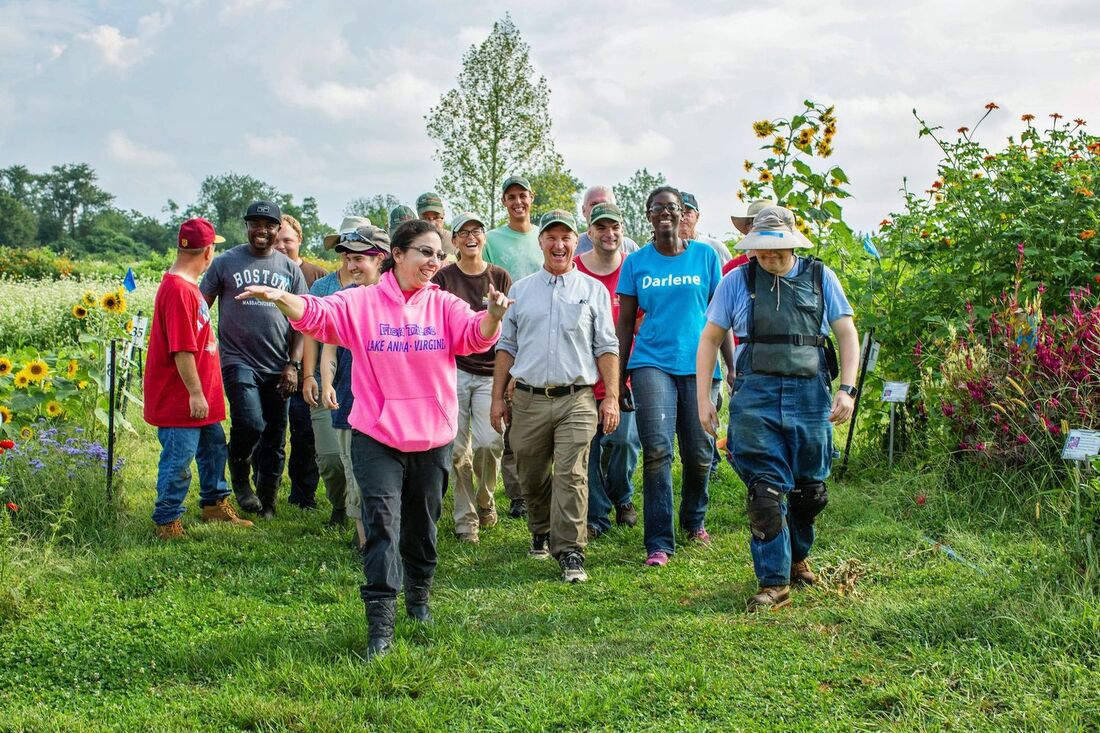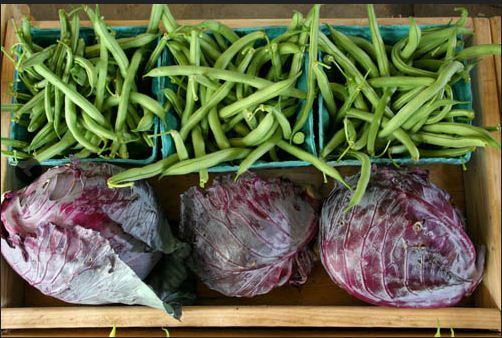Our greater food system is under pressure from environmental and economic pressures, including increased urbanization, recession fears, agricultural monocropping, desertification, climate change induced natural disasters, and more. By actively participating in CSA programs, community members can directly support local farmers, allowing them to continue their vital work. CSA not only provides financial stability for farmers but also allows them to focus on sustainable farming practices, preserving open spaces, and maintaining the cultural and community heritage associated with agriculture.
| For more information on CSA and its significance in Montgomery County, the Montgomery Countryside Alliance has a dedicated webpage on Community Supported Agriculture. This resource dives deeper into the advantages of CSA, including its positive impact on local food systems, health, and the environment. |
One of the primary benefits of CSA is that it enables residents to have access to fresh,
locally grown produce. By subscribing to a CSA, individuals or families receive regular
“shares” of seasonal fruits, vegetables, and often other farm products, such as eggs,
honey, or dairy. This arrangement ensures that consumers receive the freshest, most
nutritious food available, while also reducing the environmental impact associated with
long-distance transportation.
| Environmental Stewardship: Community Supported Agriculture plays a vital role in promoting regenerative agriculture by prioritizing environmentally friendly farming practices. Many CSA programs embrace regenerative principles, such as organic farming methods, which minimize the use of synthetic fertilizers, pesticides, and herbicides. By supporting local CSAs, residents contribute to the preservation of soil health, water quality, and biodiversity. Additionally, CSA encourages crop diversity, reducing the risk of monoculture farming and promoting sustainable ecosystems. |
CSA programs often go beyond simply providing fresh produce. They provide an excellent opportunity for education and engagement. Many CSAs offer farm visits, workshops, and other educational activities to increase awareness and understanding of sustainable agriculture. By participating in CSA, community members gain a deeper appreciation for the work that goes into food production and develop a stronger connection to the land and the farmers who nourish them.
Community Supported Agriculture has the power to bring people together. By subscribing to a CSA, residents form a sense of community around a shared commitment to local agriculture. This connection can extend beyond the transactional relationship, as CSA members often have the opportunity to meet and interact with the farmers who grow their food. Through community events, farm visits, and shared recipes, CSA members build relationships with like-minded individuals, strengthening social bonds and promoting a sense of belonging.
In response to the thought-provoking article published by Moco360, it is clear that Community Supported Agriculture offers a compelling solution to the challenges faced by Montgomery County's farming community. By actively supporting local farmers through CSA programs, residents can play a crucial role in preserving agricultural landscapes, accessing fresh and nutritious food, promoting sustainable practices, and fostering a strong sense of community. Embracing CSA is not just an investment in the future of farming but also an investment in the overall well-being and resilience of our community.


